Your 4WD is a good vehicle for an outback road trip. Since it is typically used to drive away from the city, you should ensure it is equipped with the right accessories and tools to help make your journey more comfortable and convenient. If you are not sure which equipment to buy, use the following recommended 4WD tour equipment checklist as your guide.
Important 4WD Tools & Accessories for a Long Trip
The 4WD tools and accessories that you will be needing depend on where you plan to go and how long your trip will be. Generally, you will need the following tools and accessories if you plan to go on a long remote travel:
1. Tyres
There are 4WD tyres that are specifically designed for outback travel. If you plan to go to remote places and expect rough roads, deep muds, and even flood water, make sure to upgrade your 4WD tyres to those which are designed to brave these tough road conditions. Also, don’t forget to bring a spare as you never know when you’ll be needing one.
2. Roof Racks
Your 4WD vehicle may not have enough room for all the things that you’ll bring. Roof racks allow you to bring bulky things (such as a spare tyre, tool box or bicycle) without taking up more space in the rig. This is an ideal accessory if you are travelling with the entire family or a group of friends as you will need all the space inside the vehicle so that everyone can fit comfortably.
3. 12-volt Fridge
A 12-volt fridge can keep your drinks cool and your fruits fresh. This is an extremely necessary accessory especially if you’re travelling during hot summer seasons. There’s nothing more comforting than having a cold drink in hand to quench your thirst after a long drive.
4. Air Compressor
A combination of rough roads and tough conditions may deflate your tyres in the middle of your journey. With an air compressor available, you’ll be able to pump them back up whenever you need. Also the tyre pressure you should be running on will greatly vary depending on the road conditions, an air compressor is a necessary 4WD piece of equipment that helps gauge the tyre’s pressure.
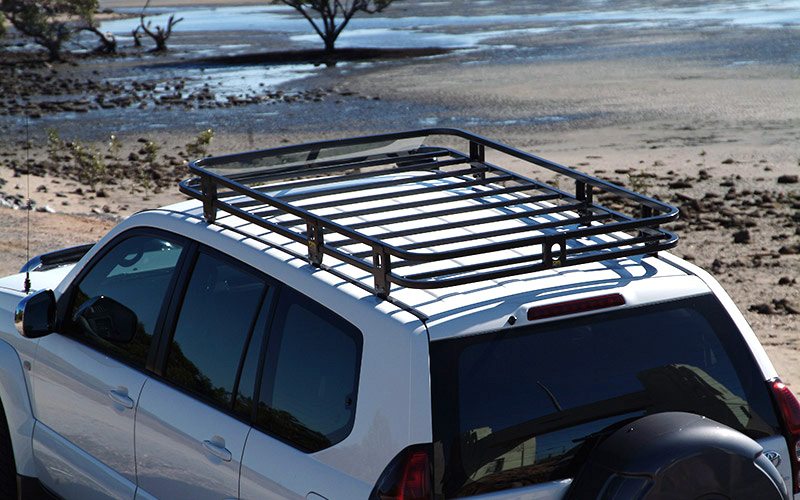
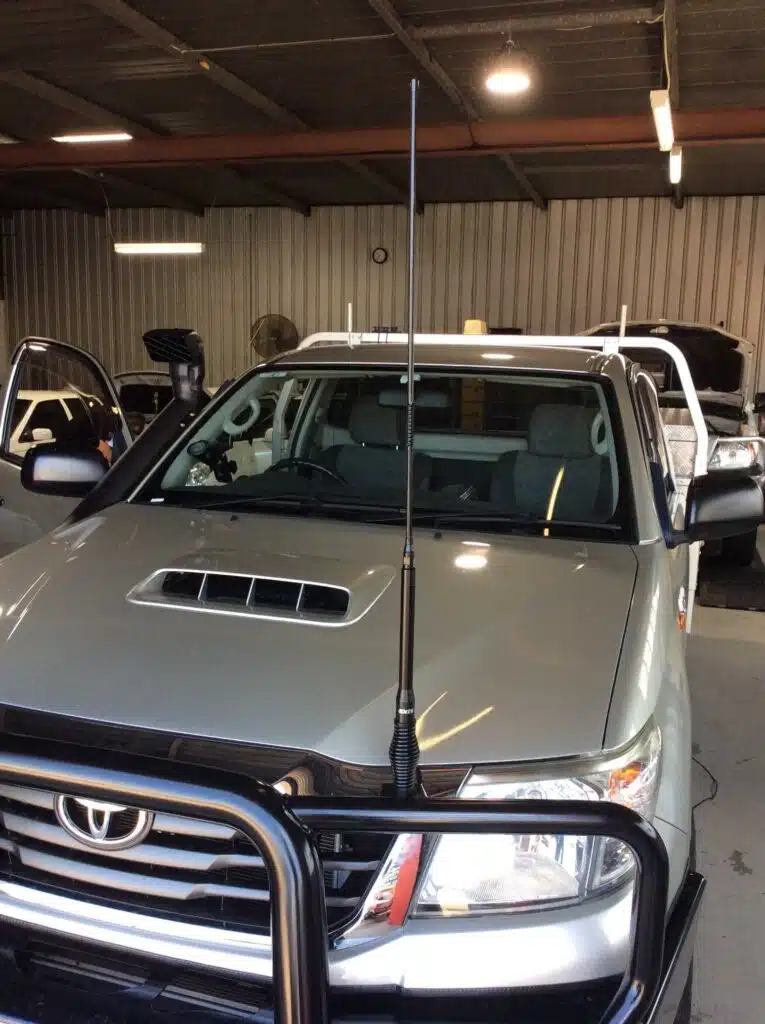
5. Shovel
If you’re planning to stop driving for a while and camp in a remote area, a shovel is something that you should not leave out. Shovels come in handy especially when you need to dig a fire pit or set up a primitive toilet. It is also a great tool for spreading the coals around your campfire while roasting food for dinner.
6. Driving Lights
Driving lights are another important 4WD touring piece of equipment that you should not forget, especially if you’re going outback traveling. Most remote areas are usually dark after sunset with no street lights, and you may not always be at a campsite that offers some light during the night. Driving lights will keep you safe whenever you need to drive in the dark. It is recommended to use those which reduce strain on the eyes to make your trip safer at night.
7. 4WD Drawers
Keep your cargo area neat and organised with a 4WD storage solution. A 4WD drawer is a great accessory that allows you to arrange your belongings and other tools neatly in your cargo area, so you can easily locate them whenever necessary.
8. Satellite Phones
Remote areas usually do not have mobile tower sites, so you can’t expect to use your mobile phones to call your friends and/or relatives back in the city. Although going for a remote journey means you want to have some time for yourself without worrying about the city life, you’ll never know when an emergency happens. Satellite phones allow you to communicate whenever you need to.
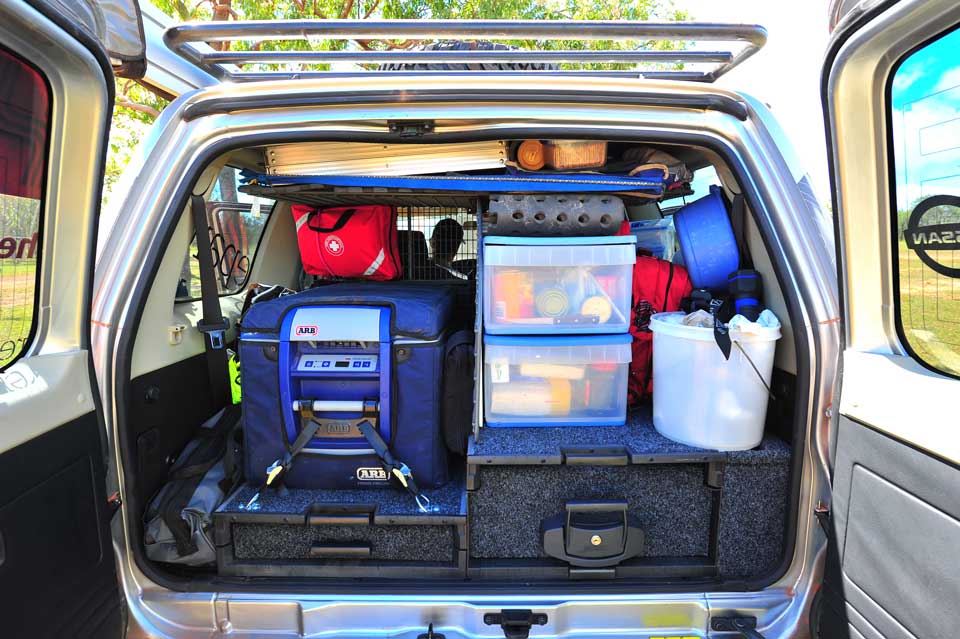
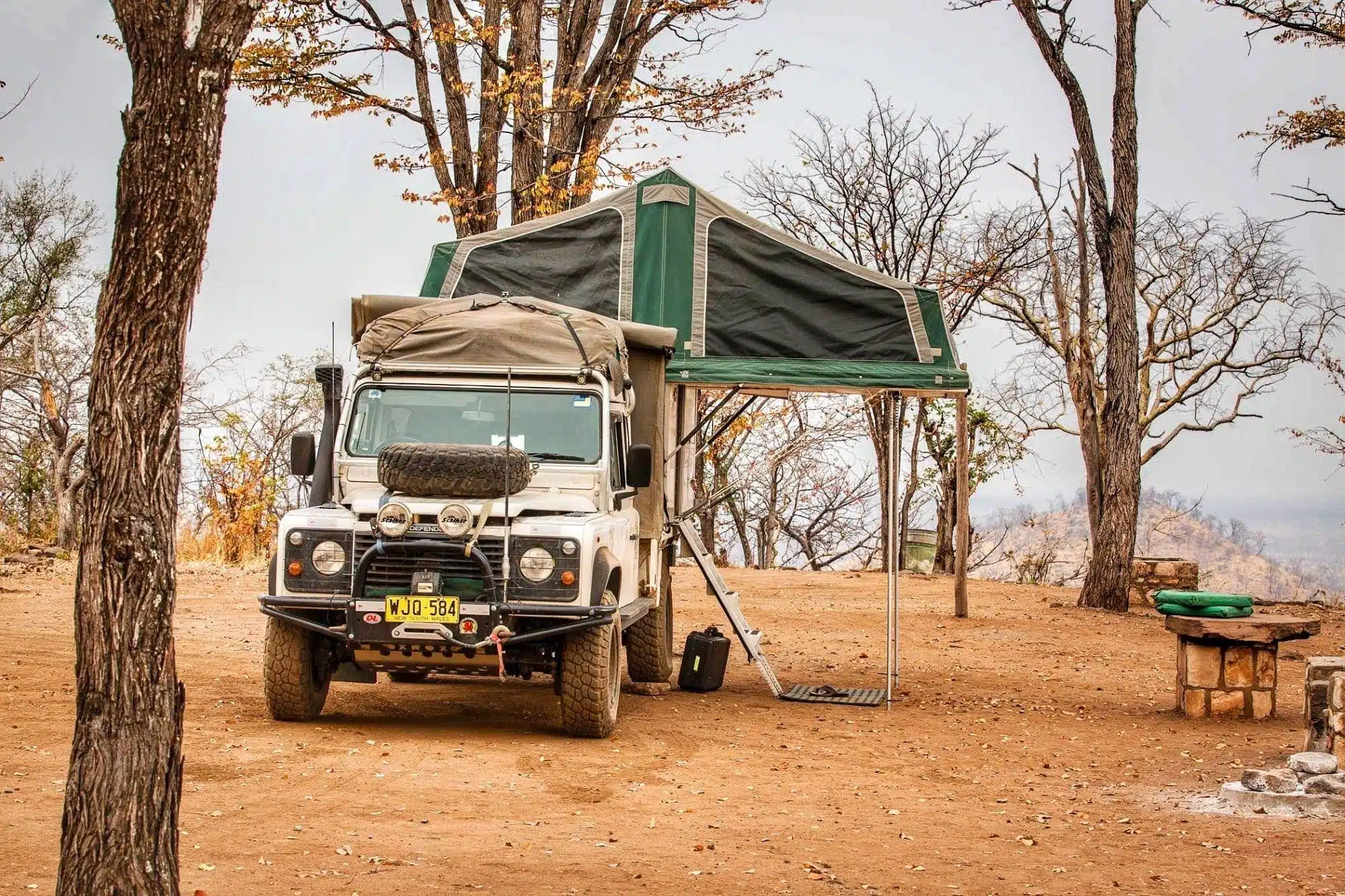
Other 4WD Tour Equipment You May Need
Aside from the accessories mentioned above, there are other equally important things that you may need to bring depending on your travel plans. Below are our recommendations:
Personal Essentials
- Food
- Water
- Water purification tablets
- Toiletries (e.g. toilet paper, soap, toothbrush, toothpaste)
- Alcohol or sanitiser
- Clothes for the weather (bring jacket for the cold nights)
- Sunblock and sunglasses
- Insect repellant
- Garbage bags
- Compass or GPS device
- Gadget chargers and extra batteries
- Tent (for camping)
- Blankets
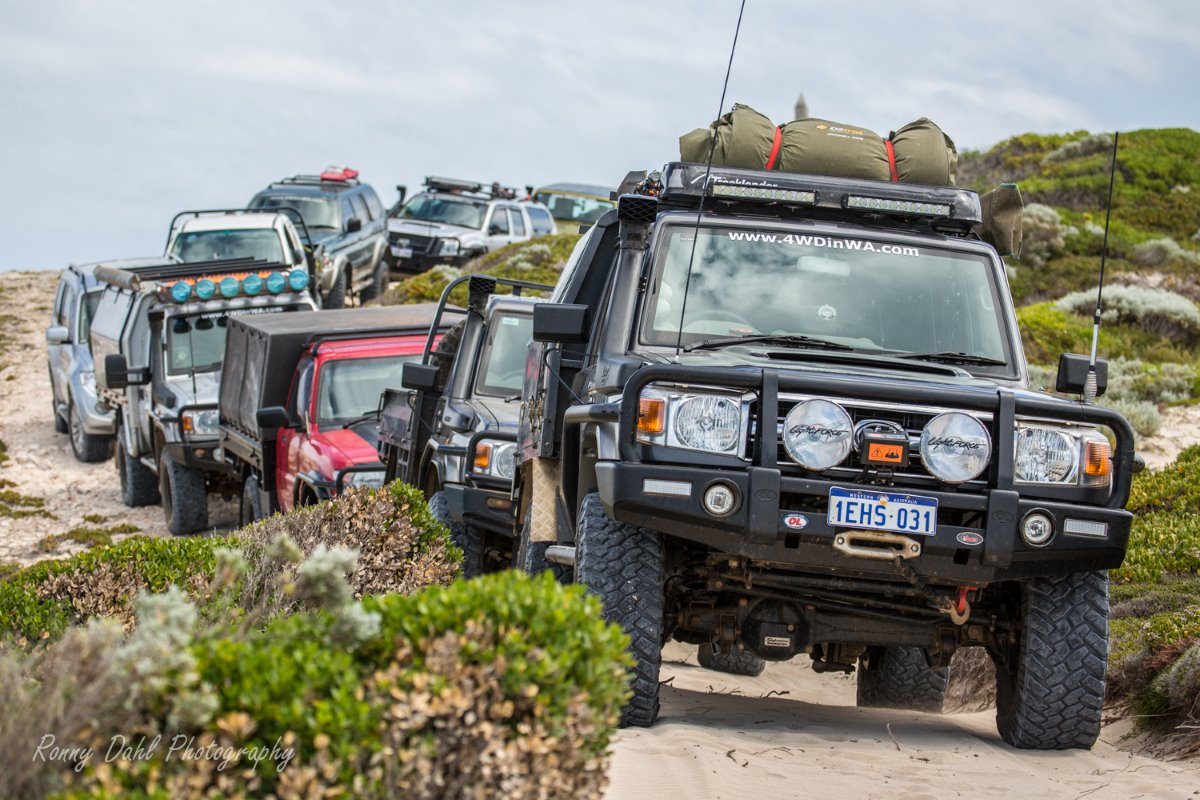
Safety & Survival Tools
- First aid kit (includes medicines for headaches, fever, stomach flu, anti-allergy, balms and ointment for burns, alcohol, dressing materials)
- Fire extinguisher
- Tyre changing equipment
- Basic tool kit (with screwdrivers, hammer, pliers, utility knife, razor blades)
- Tow strap
- Ropes
- Spare vehicle key
- Essential vehicle fluids (e.g. engine oil, washer fluid, brake fluid, power steering fluid, starter fluid)
- Matches or lighter
- Flashlights or emergency lights
- Jumper leads
- Electrical tape and duct tapes
- Adhesives
- Spare light bulbs
Important Reminders Before Your Next Road Trip
Whatever your travel plan is, make sure to have your 4WD serviced by your trusted 4WD professional before going on your next long drive. Here are a few things that need to be checked:
- Check vehicle fluids such as engine oil, transmission oil, brake fluid, radiator coolant, washer fluid, and refrigerant.
- Check tyres for wear or damage, and ensure tyre pressure is okay.
- Check brake pads and handbrakes.
- Check fan belts, hoses, air cleaner, seat belts, steering wheel, and engine.
- Check all equipment, accessories, and supplies.
Make an assessment of your personal necessities before you travel, as what you should bring will depend on different situations and needs. For instance, if you’re aware you are allergic to something, make sure to bring your medicines as you never know when your allergies might strike. Another safety tip is to always inform someone about your travel plans and itinerary, and when you expect to return. Travel in groups as much as possible and have a ready means of communication in case of emergencies.
The 4WD tour equipment that you’ll be needing will vary depending on your travel plans. If you’re not sure what tools and accessories you should bring, talk to your trusted 4WD professional so you can get an assessment of what your vehicle needs.
When it comes to 4WDs, Sandgate Auto Electrics is your one-stop shop! Our 4WD experts will gladly assist you to ensure that you have a comfortable and safe road trip ahead. For inquiries, you may call us at (07) 3269 3158 or send a message. You may also visit our workshop at 113 Connaught Street Sandgate QLD 4017 for a consultation.

